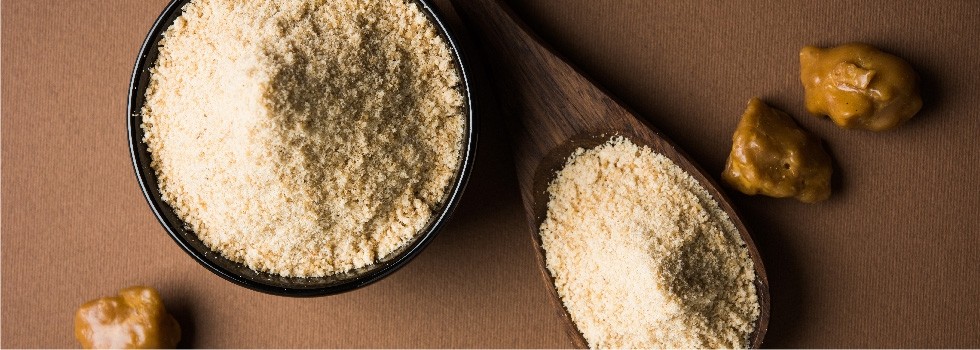Promotional Features
Botanical Blend Shows Promise for Supporting Upper Digestion
European and Indian mainstay herbs merge to promote smooth upper gastric function.
There are countless ingredients available that support lower gastrointestinal (GI) tract health, especially as it relates to the microbiome. Among these are several types of products such as prebiotics, probiotics and a newer entrant, postbiotics.
However, the current options available for supporting upper GI tract health are relatively limited by comparison, despite the ubiquitous nature of indigestion. Indigestion is characterized by upper abdominal discomfort, as well as a feeling of excessive fullness during or after finishing a meal.1 Factors thought to contribute to feelings of indigestion include but are not limited to: consumption of caffeinated or alcoholic beverages, fatty or spicy foods; eating too much and/or too quickly, stress and smoking.1
A new botanical blend produced by Vidya Herbs -- Asdamarin™ -- combines a supercritical asafetida extract with an ethanolic milk thistle seed extract in a 1:3 ratio. Asafetida is a common culinary spice throughout India, and typically serves as a substitute for garlic in recipes. In Ayurveda, asafetida has been traditionally used to provide relief from indigestion.2 While milk thistle might be most well-known for its traditional uses related to liver health, this too has been traditionally indicated for indigestion.3
Early research by Vidya Herbs on Asdamarin suggests that the mechanism by which it provides benefits for indigestion is that it improves gastric emptying, or the movement of food through the digestive tract.4
In a new randomized, double-blind, placebo-controlled, parallel group, single-center study done by the company, adults with upper digestive disturbances consumed Asdamarin™ (250 mg, twice per day after food) or a placebo for 7 days. Results indicated that the Asdamarin group saw significant improvements in various parameters including the Gastrointestinal Symptom Rating Scale (GSRS) and other measures evaluating the severity of digestive disturbance and quality of life compared to the placebo.
Asdamarin is an ideal choice for formulators wanting to emphasize nature-inspired product themes due to its plant-based, non-GMO attributes. Asdamarin is also free of the eight major food allergens: milk, eggs, fish, shellfish, tree nuts, peanuts, wheat and soy.
-------
References:
[1] Mayo Clinic. 2019.
[2] Khalsa, K. P. S., Tierra, M. (2008). United States: Lotus Press.
[3] Edwards, S. E., Williamson, E. M., Heinrich, M., da Costa Rocha, I. (2015). Germany: Wiley.
[4] Illuri, R., Venkataramana, S.H., Daguet, D. et al. BMC Complement Altern Med 19, 159 (2019).




